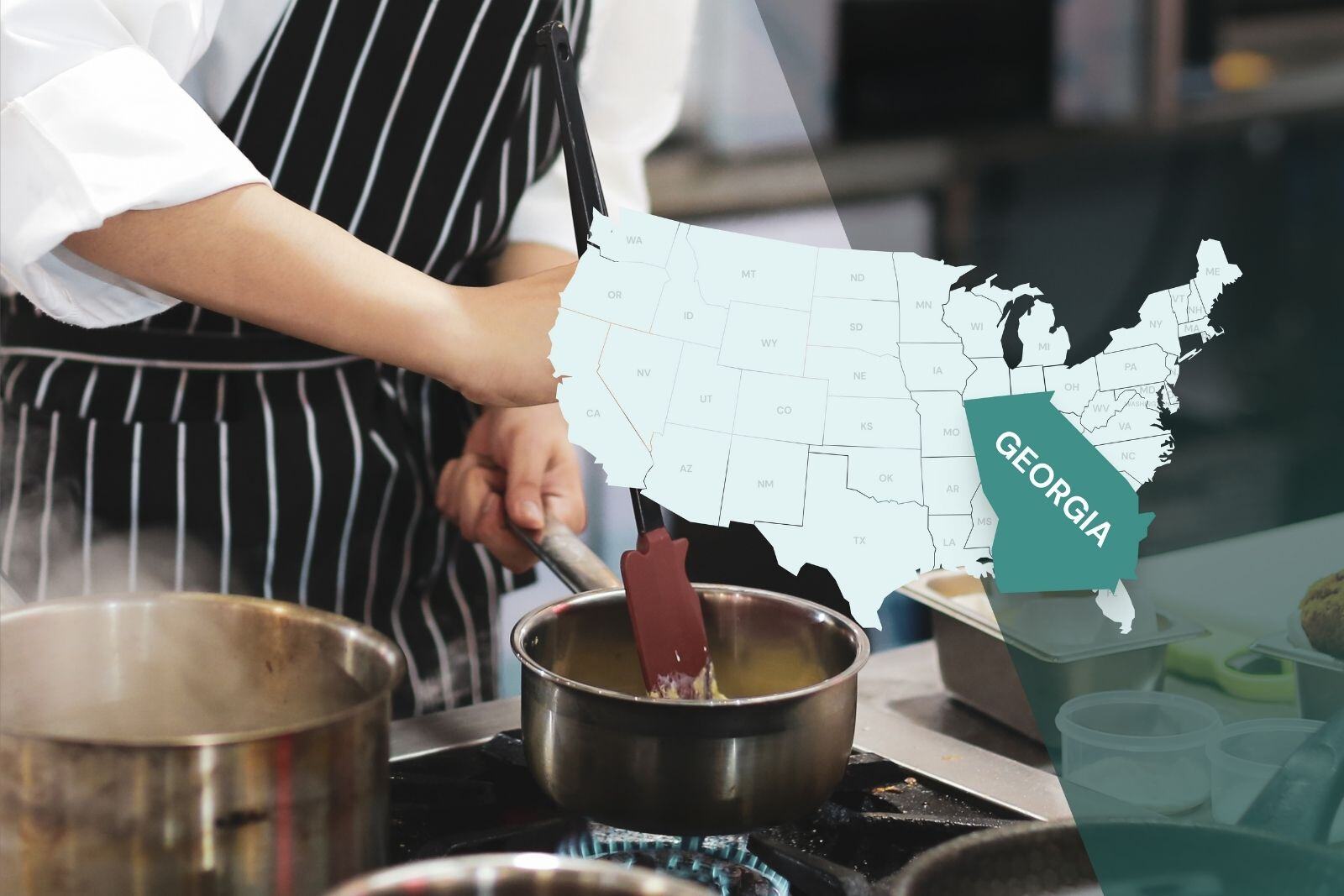Peach cobbler, fried green tomatoes, and pecan pie are staples in Georgia’s food scene. However, customers would not be able to enjoy these mouthwatering delights if the foodservice industry didn’t first prioritize food safety.
The Georgia Department of Public Health's top concern is ensuring every dish is free from foodborne pathogens.1 Drawing on the U.S. Food and Drug Administration's (FDA) guidelines, Georgia puts the responsibility of food safety in the hands of managers.
In this blog, we’ll cover all you need to know for a successful career in Georgia’s foodservice industry, including:
Which version of the FDA Food Code does Georgia use?
Does Georgia require a food handler card?
Does Georgia require allergen awareness training?
Does Georgia require food manager certification?
Looking to your local health department
Which version of the FDA Food Code does Georgia use?
The FDA Food Code provides food safety recommendations for the entire country, and local health departments can adopt these recommendations as is or adjust them as necessary.
As food safety science evolves, so does the FDA Food Code. The FDA publishes updates every two years and released the most recent edition in 2022. However, Georgia has adopted the 2017 version.2
The 2017 FDA Food Code:
-
Mentions food handlers but does not mandate food handler training;
-
Describes food allergen awareness to mean that a person in charge must be aware of their risks and be ready to discuss them in inspections; and
-
Recommends a person in charge pass an exam to become a certified food protection manager (CFPM).
Read on to learn how the Georgia Department of Public Health uses these recommendations.
Does Georgia require a food handler card?
No, food handler certificate training is not required in Georgia. However, some businesses may require food handler training as a part of the hiring process–and taking an online food handler course could help your resume stand out and land you an interview.
Does Georgia require allergen awareness training?
No, food allergen awareness training is not required in Georgia.
However, a person in charge on each shift must be able to demonstrate allergen awareness during an inspection, and an establishment's certified food safety manager is responsible for properly training staff in food allergy awareness.3
Does Georgia require food manager certification?
Yes! In Georgia, a person in charge who has passed an exam from an accredited program is known as a certified food safety manager (CFSM). Every establishment must have one CFSM on staff.
Certified food safety managers are responsible for supervising staff who are handling food, training staff in safe food handling practices, communicating with health officials, and, when necessary, requesting formal staff training (from providers such as Trust20’s for Teams).3
There are three types of establishments where a CFSM is not required:
- Mobile food services;
- Establishments that serve non-TCS foods; and
- Temporary food establishments.
A CFSM typically must renew their credentials by taking a new exam every five years.
Look to your local health department
Counties have the final say regarding food safety training, certification, and regulations in Georgia. Since there are 159 counties divided into 18 separate public health districts in the state, it is always a good idea to confirm the requirements of your local jurisdiction.4,5
The takeaway
Certified food safety managers lead the charge against foodborne illnesses in Georgia foodservice establishments. Their leadership is critical to ensuring food handlers follow food safety best practices, and CFSMs can help prevent foodborne illness outbreaks by taking this responsibility seriously. If you want to stay on top of the latest guidelines, renew your credentials, or train your team, look no further than Trust20’s ANAB-accredited products. Prioritizing food safety will have lasting effects on your customers and your establishment!
Sources:
-
Georgia Department of Public Health: Environmental Health
-
FDA: 2017 Food Code
-
Georgia's Food Service Rules and Regulations: Chapter 511-6-1
-
Georgia: County Health Departments
-
Georgia: District Office Directory





.png)

.png)
